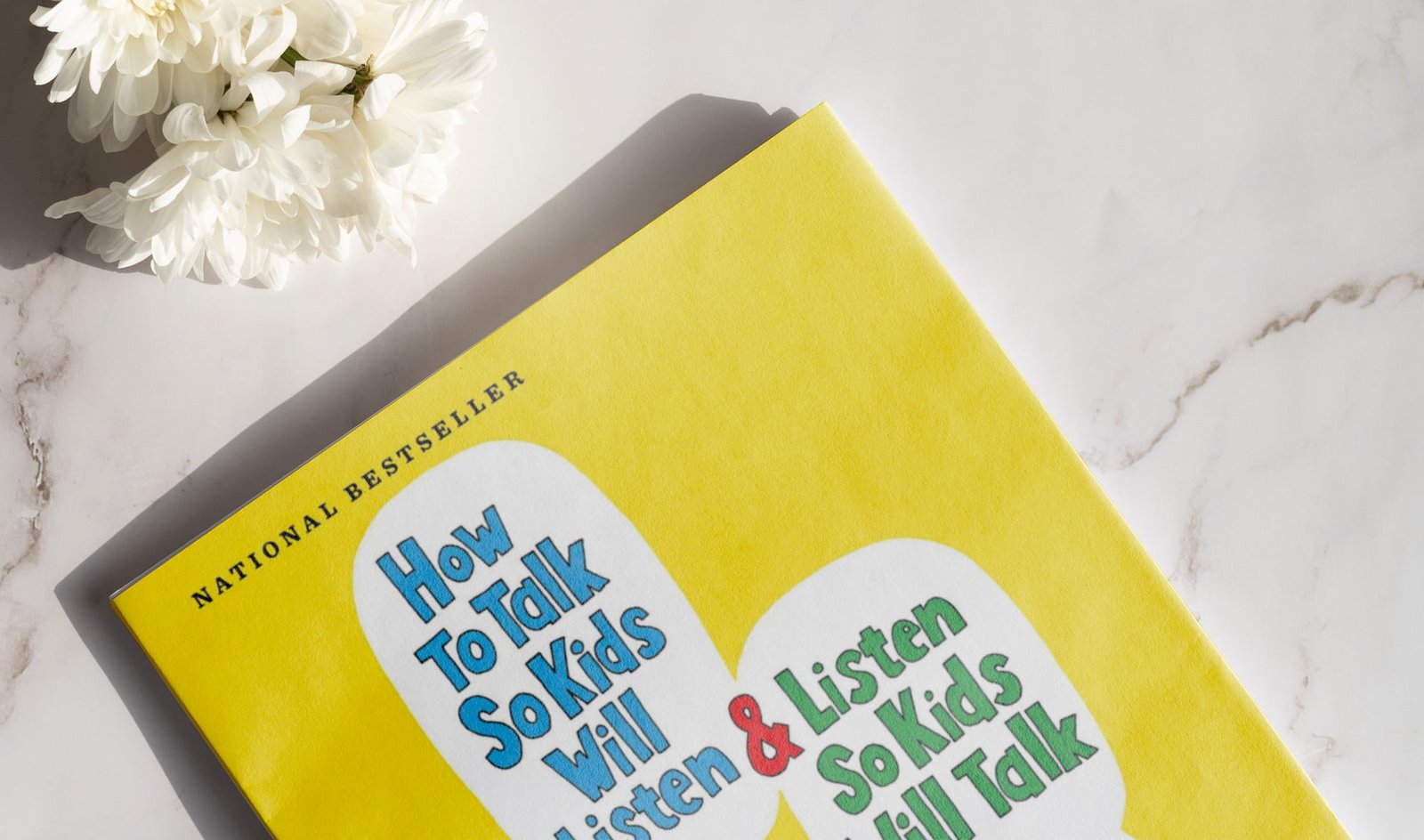The Silence is Deafening: My Adult Daughter Talks to Her Friends But Not Me (And Is It Normal?)
The Empty Chair at the Table: A Feeling I’m Sure You Understand
Have you ever felt like you’re on the outside looking in, especially when it comes to your child? It’s a feeling like no other. It stings. You see them laughing and sharing secrets, their faces lit up as they scroll through their phones, and they are probably texting their friends. And you? You’re sitting there, feeling invisible. My heart aches. I’m a mom who knows this feeling all too well. I’ve lived it. It wasn’t always like this, though. We used to be so close. Now, my adult daughter talks to her friends but not me.
There was a time when the dinner table was a cacophony of noise in our home. My daughter, Sarah, would chatter away about her day, her voice bubbling with excitement. Every detail, every triumph, every teenage heartbreak – I heard it all. Now? The chair opposite me often sits empty. Even when she’s home, the silence is palpable. She’s there physically, but her mind, her heart, they’re elsewhere – with her friends. If I’m honest, it feels like a door has been gently but firmly closed in my face.
This isn’t just a “me” problem. Recent studies show nearly 60% of parents with adult children report feeling a disconnect, a sense that they’re not as close as they once were. So, if you’re nodding along, know you’re not alone. We’re in this together! But here’s the million-dollar question us up at night: Is this normal, or is it a sign that something is truly broken in our relationship?
This isn’t just about hurt feelings. It’s bigger than that. It’s about the evolution of the family. It’s about navigating the tricky transition from parent to… well, what exactly? Friend? Confidante? Occasional advisor? We’ll dive deep into all of this. We’ll explore why this happens, whether it’s normal, and most importantly, how to bridge the gap without smothering our exceptional, independent adult children.
Decoding the Silence: Why the Communication Gap Happens
Let’s face it. It’s easy to spiral when your adult daughter suddenly clams up around you. A million anxieties flooded in. Did I do something wrong? Does she not love me anymore? It’s a lonely place to be, believe me. But through my journey and after countless conversations with other parents and experts, I’ve learned that the reasons behind this silence are often far more complex than we initially assumed. They’re rarely about us being bad parents! It isn’t personal, at least not typical.
The Inevitable March Towards Independence
Think about it. From the moment they take their first steps, our children are striving for independence. It’s a natural, healthy part of growing up. As they become adults, this drive intensifies. They’re forging their own identities, separate from us. It’s a necessary step. It’s a critical one. Friends often become the sounding boards during this phase. They offer support without the perceived baggage of parental expectations.
- Identity Formation: This is a big one. Young adults are figuring out who they are, what they believe, and where they fit in the world. Friends offer a safe space to explore these questions without fear of judgment or disappointment from parents. It is part of growing up.
- Peer Validation: Let’s be honest, at that age, what your friends think often carries more weight than what your parents believe. It just does. They’re navigating similar life stages, facing similar challenges. There’s a comfort in that shared experience that’s hard to replicate with a parent. Sarah, for instance, found it easier to discuss her career anxieties with her friends who were also starting in the workforce. I couldn’t offer the same level of understanding, no matter how hard I tried.
- Privacy and Boundaries: As children grow, they naturally crave more privacy. It is usual for them. It’s healthy. They need space to make their own mistakes, learn their lessons, and develop their coping mechanisms. This doesn’t mean they don’t love us. It just means they’re growing up. This doesn’t necessarily mean they are shutting us out.
The Fear Factor: Judgment and Disapproval
Sometimes, the silence isn’t about independence. It’s about fear. I know I wasn’t always the most approachable parent when Sarah was younger. I tended to, shall we say, overreact. Okay, I could be a bit dramatic. And my well-intentioned advice often came across as criticism.
- Past Reactions Matter: If we’ve reacted negatively to their choices in the past, even unintentionally, it can create a reluctance to share in the future. They learn to anticipate our reactions, and sometimes, silence seems safer.
- Value Clashes: Let’s face it: parents and adult children don’t always see eye to eye. Whether it’s about relationships, career choices, or lifestyle, differing values can create a communication chasm. They might worry that we won’t understand or approve, so they simply avoid the topic altogether.
- Protecting Us (and Themselves): Sometimes, adult children withhold information because they don’t want to worry us. Or, they might be protecting themselves from our well-meaning but ultimately unhelpful advice. It’s a misguided attempt at maintaining peace, but it can backfire spectacularly. I remember Sarah going through a tough breakup. She didn’t tell me for weeks because she knew I’d worry myself sick. In her mind, she was protecting me, but it left me feeling shut out.
Communication Breakdown: Lost in Translation
We live in a different world than our kids. No news there, right? However, these differences can create real communication barriers. We grew up with face-to-face conversations and landlines. They’ve grown up with smartphones and social media. It is just different.
- Generational Differences: Texting, emojis, DMs – it’s a whole different language! We might prefer a phone call, while they might feel more comfortable with a quick text. These differences can lead to misunderstandings and a sense of disconnect.
- The Listening Gap: Here’s a tough one. Sometimes, we’re so eager to offer solutions that we forget to listen simply. Our adult children might just want to vent, to be heard, not to be “fixed.” Learning to listen actively, without interrupting or offering unsolicited advice, is a skill that takes practice.
- Unintentional Shutdowns: We might not even realize we’re doing it. Phrases like “I told you so” or “When I was your age…” can instantly shut down a conversation. They might seem harmless to us, but to our adult children, they can feel dismissive and judgmental. It’s something I’ve had to work on consciously.
Is This Normal? Navigating the New Parent-Adult Child Dynamic
This is the crux of it all, isn’t it? When does the usual ebb and flow of a changing relationship become something to worry about? It’s a question that plagued me for a long time. The truth is there’s no easy answer. But through a lot of soul-searching, research, and conversations with other parents, I’ve come to a more nuanced understanding. And guess what? It is normal.
The Shifting Sands: From Parent to… What Exactly?
The parent-child relationship is a dynamic, ever-evolving thing. As our children become adults, our role inevitably changes. We’re no longer the primary caregivers, the rule-makers, the ultimate authority. That can be a tough pill to swallow. But embracing this shift is crucial for maintaining a healthy relationship.
- Redefining the Relationship: It’s about transitioning from a hierarchical parent-child dynamic to a more equal, adult-to-adult relationship. This involves mutual respect, understanding, and a willingness to see each other as individuals, not just as “parent” and “child.”
- Boundary Setting: Just as our adult children need boundaries, so do we. It is usual for them to want privacy. It’s about finding a balance between staying connected and respecting their need for independence. This might involve negotiating communication styles, visiting schedules, and levels of involvement in each other’s lives.
- Evolving Roles: Our role shifts from director to a supporting cast member. We become a sounding board, a source of advice (when asked), and a shoulder to cry on (when needed). It’s about offering guidance without imposing our will and supporting their choices even when we might not fully agree.
The Hallmarks of a Healthy Relationship (Even with Less Communication)
It is important to remember that a healthy relationship with your adult child might look different from what you envisioned. It might involve less frequent communication than when they were younger. But that doesn’t necessarily mean it’s a bad relationship.
- Open, Honest, and Respectful (When It Happens): The quality of communication matters more than the quantity. When you do talk, is it open, honest, and respectful? Do you feel heard, and do they? That’s what counts.
- Mutual Support: Are you there for each other during significant life events, both good and evil? Do you offer support without judgment? Do you celebrate each other’s successes?
- Enjoying Each Other’s Company: When you do spend time together, do you want it? Is it filled with laughter, shared interests, and genuine connection? Even if it’s just a quick phone call or a shared meal, those moments of connection are precious.
Red Flags: When to Worry
While some distance is typical, sure signs might indicate a deeper problem.
- Total Communication Blackout: If your adult daughter consistently ignores your calls and texts and attempts to connect for an extended period without explanation, that’s a concern. It is different than needing space.
- Worrying Changes: If you notice significant changes in her behavior, mood, or well-being, such as increased isolation, signs of depression, or substance abuse, it’s time to step in carefully and with concern.
- Unhealthy Influences: If you have genuine concerns about the people she is confiding in, if you suspect she’s in an unhealthy or abusive relationship or involved in risky behaviors, you have a right to express your concern, though it must be done with tact and sensitivity.
Bridging the Gap: Practical Steps to Reconnect
Okay, so we’ve established that some distance is normal. But that doesn’t mean we have to accept a complete communication breakdown passively. There are things we can do proactively to foster a stronger connection with our adult daughters.
Opening the Lines of Communication (Gently!)
The key here is to create a safe and inviting space for communication without pressure or expectation.
- “I” Statements are Your Friend: Instead of saying, “You never talk to me anymore,” try, “I’ve noticed we haven’t talked as much lately, and I miss our conversations.” Focus on your feelings without placing blame.
- Find the Right Time and Place: Don’t try to have a heart-to-heart when she’s rushing out the door or glued to her phone. Choose a relaxed setting where you can both be present and engaged. Maybe it is over coffee, maybe on a walk.
- Extend an Invitation, not a Demand: Instead of saying, “We need to talk,” try, “I’d love to hear more about what’s going on in your life. Would you be up for grabbing coffee sometime this week?”
The Art of Active Listening
This is where the real magic happens. Learning to truly listen without interrupting, judging, or offering unsolicited advice is a game-changer.
- Beyond the Words: Pay attention to her body language and tone of voice. What is she not saying? Sometimes, the unspoken messages are the most important.
- Reflect and Validate: Summarize what you’ve heard to show you’re paying attention. “It sounds like you’re feeling really stressed about work. That must be tough.” Validating her feelings, even if you disagree with her perspective, is crucial.
- Please resist the Urge to Fix: This is a hard one for us parents. We want to solve their problems and make everything better. But sometimes, they just need to vent. Ask if she wants advice before offering it.
Creating Shared Experiences
Shared experiences are the glue that holds relationships together. They create memories, foster connections, and provide natural opportunities for conversation.
- Find Common Ground: What do you both enjoy? Maybe it’s hiking, cooking, watching movies, or exploring new places. Find an activity you can do together regularly, even if it’s just for an hour or two.
- New Traditions: Create new rituals that are unique to your adult relationship. Maybe it’s a weekly phone call, a monthly brunch date, or an annual weekend getaway.
- Show Interest (Without Being Nosy): Ask about her friends, her hobbies, and her work. Remember the details and follow up later. “How did that project at work turn out?” or “Are you still enjoying that yoga class?”
Acceptance and Finding Peace: Embracing the New Normal
Here’s the truth: we can’t force a close relationship. We can create the conditions for connection, but ultimately, our adult children are their people. They get to choose how they navigate their relationships, including the one with us.
Respecting Her Journey
This is about letting go of control, accepting their choices, and trusting that we’ve raised them well.
- Letting Go of the Reins: It’s not our job to dictate their lives anymore. It is okay. They need the space to make their own decisions, even if we disagree with them. It is part of their journey.
- Celebrating Her Independence: Be proud of the independent, capable woman she’s become. Acknowledge her achievements, support her goals, and cheer her on from the sidelines.
- Trusting the Foundation: Remember the years of love, support, and guidance you’ve poured into her. Trust that the foundation you’ve built is strong enough to withstand the changes that come with adulthood.
Focusing on Your Well-being
This is crucial. Our happiness cannot be solely dependent on our relationship with our adult children.
- Nurture Other Relationships: Invest in your friendships, your partner, and your other family members. Build a strong support system for yourself. It is healthy for you.
- Pursue Your Passions: Rediscover old hobbies or find new ones. Focus on your personal growth and fulfillment. A complete and vibrant life makes you a more enjoyable and engaging person.
- Seek Support: If you’re struggling, don’t be afraid to reach out to a therapist or counselor. Talking to a professional can help you process your emotions and develop healthy coping mechanisms. There is no shame in that.
The Ever-Changing Relationship
The relationship with your adult daughter will continue to evolve. It is inevitable. There will be ups and downs, periods of closeness and distance. That’s okay.
- Embrace the New Dynamic: Be open to the changes, the new phases, and the unexpected turns. It’s a journey, not a destination. There will be bumps.
- Patience and Understanding: Building (or rebuilding) trust takes time. Be patient with yourself and with her. Small steps can lead to significant progress.
- Love Endures: Through it all, remember that the love between a parent and child is a powerful force. It might be expressed differently now, but it’s still there, a constant undercurrent that connects you. It is a bond that cannot be broken.
This journey with my adult daughter has been one of the most challenging and rewarding experiences of my life. It’s forced me to grow, to adapt, to let go, and to trust. It hasn’t been easy, but it’s been worth it. And I know, deep down, that our relationship, in its new form, is stronger than ever before. So, to all the parents out there feeling that pang of disconnect, take heart. You’re not alone. And it doesn’t have to be this way forever. There is hope; there is a path forward. It starts with understanding, empathy, and a willingness to embrace the beautiful, ever-changing dance of the parent-adult-child relationship. We can do this. We will.
Recommend Books
“How to Talk So Kids Will Listen & Listen So Kids Will Talk” by Adele Faber and Elaine Mazlish:
- While not explicitly focused on adult children, this classic book provides timeless advice on effective communication, active listening, and building stronger relationships within families. The principles apply to all ages and stages. It is considered a must-read for parents.
- What it offers: Practical strategies for fostering open communication, resolving conflicts peacefully, and creating a more harmonious family environment. It will help with listening skills.
- Although geared towards the college transition, this book tackles the broader theme of letting go and adjusting to your child’s growing independence. It is an invaluable guide.
- What it offers: Insights into the emotional and practical challenges faced by both parents and young adults during this period of significant change, with advice on how to navigate the evolving relationship.
“You’re Wearing THAT?: Understanding Mothers and Daughters in Conversation” by Deborah Tannen:
- Tannen, a renowned linguist, delves into the complexities of mother-daughter communication, exploring how different conversational styles can lead to misunderstandings and conflict. It is a fascinating read.
- What it offers: A deeper understanding of the nuances of communication patterns, helping readers identify potential pitfalls and develop more effective ways of interacting with their adult daughters.
“The Dance of Connection: How to Talk to Someone When You’re Mad, Hurt, Scared, Frustrated, Insulted, Betrayed, or Desperate” by Harriet Lerner:
- This book addresses difficult conversations and how to navigate them constructively, a common challenge in parent-adult-child relationships.
- What it offers: Practical tools for expressing your needs and feelings clearly, setting healthy boundaries, and fostering more authentic connections, even when emotions are running high.
- A more recent addition to the genre, this book has quickly become a favorite among parents of older teens and young adults. It is very popular.
- What it offers: It covers a wide range of topics related to parenting adult children, from navigating an empty nest to offering support without overstepping. It is full of real-life stories that parents love.
FAQs
It’s completely natural to feel a little stung when your adult daughter seems to confide more in her friends. It often signals a healthy shift towards independence. She’s building her own identity and navigating new experiences, and her friends are walking that path alongside her, offering relatable support. It is part of her journey. It doesn’t mean she loves you any less. It’s just a different kind of connection. This phase is less about you and more about her spreading her wings. Think of it as a natural evolution of your relationship. She is growing, and that is a good thing!
Honestly, yes, it can be expected to feel a twinge of jealousy. You are human, after all. It’s not necessarily about the friends themselves but rather about the perceived closeness they share with your daughter – a closeness you might be missing. It’s a sign you cherish your bond with her. Acknowledge these feelings but try not to let them fester. Instead, focus on nurturing your relationship with your daughter in new ways while also giving her the space she needs to grow. It’s a delicate balance, for sure.
The key is to create a safe, non-judgmental space where she feels comfortable sharing. Start by listening more than you talk. When she does share, please resist the urge to offer advice or solutions unless she asks for them immediately. She shows genuine interest in her life, her passions, and, yes, even her friends. Initiate conversations, but also respect her need for space. Building trust takes time, so be patient and persistent. Small, consistent efforts can make a big difference. It is essential to be patient.
While some distance is expected, a complete communication blackout could be a red flag. It is essential to pay attention. It’s less about the frequency and more about the overall quality of your connection. Does she seem happy and engaged with life? Do you have moments of genuine connection, even if they’re brief? If you’re concerned about her well-being or notice drastic changes in her behavior, express your concern gently and lovingly. Let her know you’re there for her, no matter what. Sometimes, just knowing you’re in her corner is enough. If there are concerns, you may need to intervene carefully.
Embrace the change! It’s a chance to redefine your relationship on a more equal footing, transitioning from a purely parental role to one that includes friendship and mentorship (when invited). Celebrate her independence, support her journey, and focus on building new connections while honoring the enduring bond you share. It is a journey for both of you. It’s about finding a new rhythm, a new way of relating. It won’t always be easy, but it can be gratifying. This is a chance to see your daughter blossom into the amazing adult you’ve raised her to be. And be proud of yourself; you did that!
Related Posts
















































































